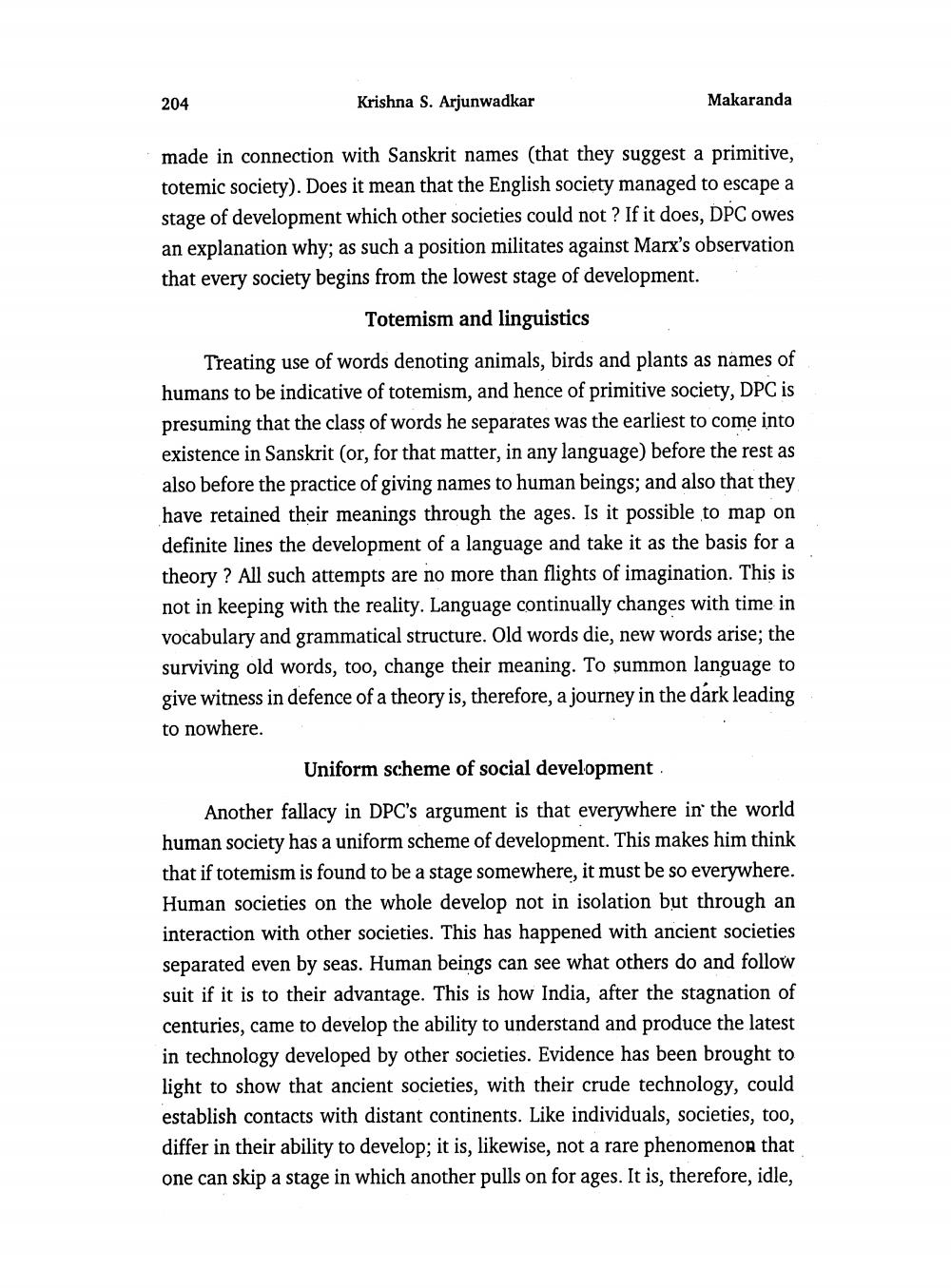________________
204
Krishna S. Arjunwadkar
Makaranda
made in connection with Sanskrit names (that they suggest a primitive, totemic society). Does it mean that the English society managed to escape a stage of development which other societies could not? If it does, DPC owes an explanation why; as such a position militates against Marx's observation that every society begins from the lowest stage of development.
Totemism and linguistics
Treating use of words denoting animals, birds and plants as names of humans to be indicative of totemism, and hence of primitive society, DPC is presuming that the class of words he separates was the earliest to come into existence in Sanskrit (or, for that matter, in any language) before the rest as also before the practice of giving names to human beings; and also that they have retained their meanings through the ages. Is it possible to map on definite lines the development of a language and take it as the basis for a theory? All such attempts are no more than flights of imagination. This is not in keeping with the reality. Language continually changes with time in vocabulary and grammatical structure. Old words die, new words arise; the surviving old words, too, change their meaning. To summon language to give witness in defence of a theory is, therefore, a journey in the dark leading to nowhere.
Uniform scheme of social development
Another fallacy in DPC's argument is that everywhere in the world human society has a uniform scheme of development. This makes him think that if totemism is found to be a stage somewhere, it must be so everywhere. Human societies on the whole develop not in isolation but through an interaction with other societies. This has happened with ancient societies separated even by seas. Human beings can see what others do and follow suit if it is to their advantage. This is how India, after the stagnation of centuries, came to develop the ability to understand and produce the latest in technology developed by other societies. Evidence has been brought to light to show that ancient societies, with their crude technology, could establish contacts with distant continents. Like individuals, societies, too, differ in their ability to develop; it is, likewise, not a rare phenomenon that one can skip a stage in which another pulls on for ages. It is, therefore, idle,




